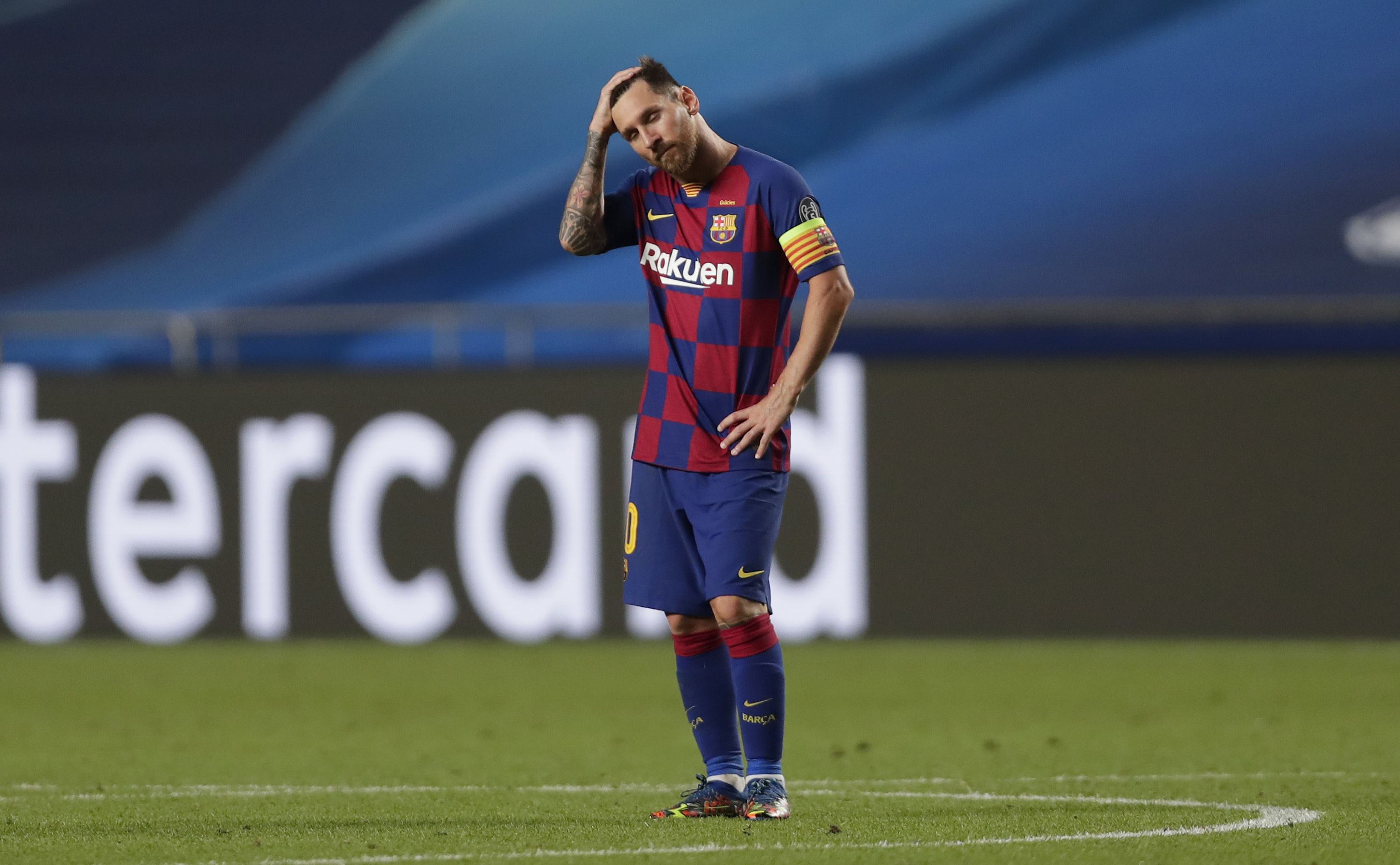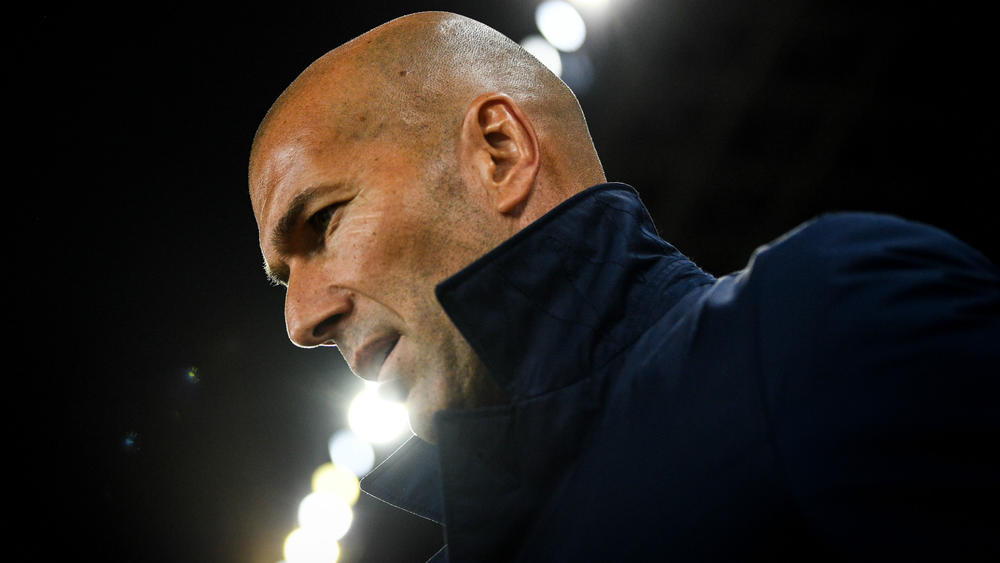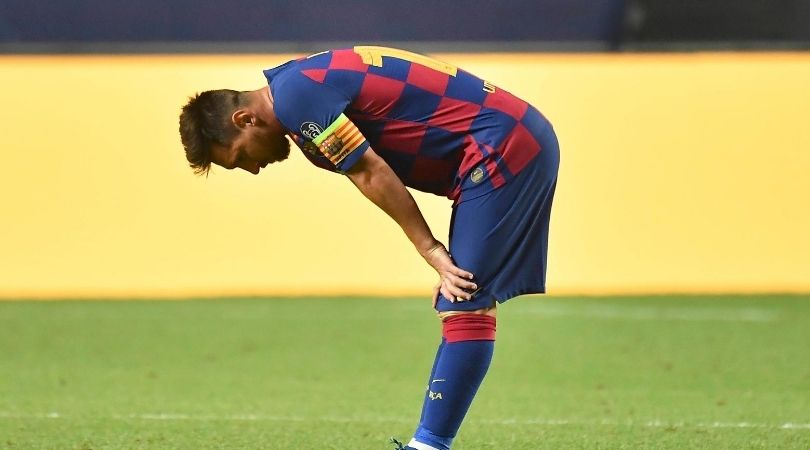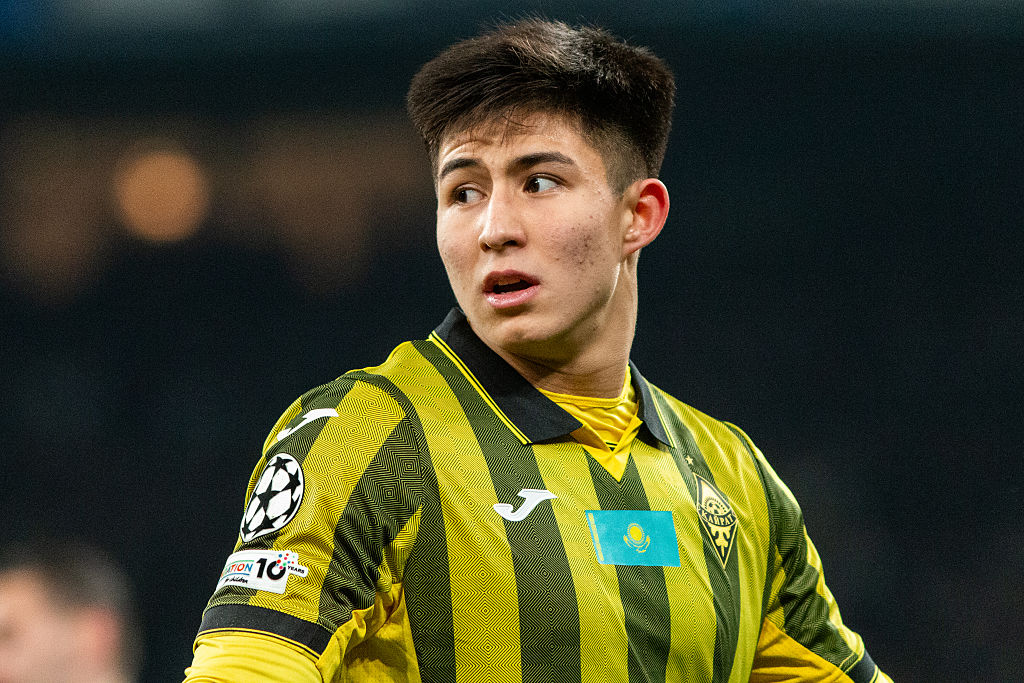The Champions League is different this year: how Real Madrid and Barcelona have sunk to their lowest status in decades
Neither Real Madrid or Barcelona are among the favourites for the Champions League this season. What has happened to the Spanish giants?

The best features, fun and footballing quizzes, straight to your inbox every week.
You are now subscribed
Your newsletter sign-up was successful
Want to add more newsletters?

Five times a week
FourFourTwo Daily
Fantastic football content straight to your inbox! From the latest transfer news, quizzes, videos, features and interviews with the biggest names in the game, plus lots more.

Once a week
...And it’s LIVE!
Sign up to our FREE live football newsletter, tracking all of the biggest games available to watch on the device of your choice. Never miss a kick-off!
Join the club
Get full access to premium articles, exclusive features and a growing list of member rewards.
They are rarely separated. Spain’s dominant duo for much of its history as a footballing nation, arguably Europe’s for most of the last dozen years, defining themselves by who they are and who they are not. And Real Madrid and Barcelona are together again.
Not first and second, as is often the case, but fifth and sixth. According to the bookmakers, who are famously rarely wrong about such matters, they are the fifth and sixth favourites to win the Champions League. And while there may be some Anglocentric bias – or betting – in placing Manchester City above each, it marks the end of an era. It is hard to see either Real or Barcelona among the continent’s three best teams.

If Bayern Munich, Liverpool and Paris Saint-Germain constitute the top tier of contenders to become European champions, Real and Barca find themselves in the second bracket, along with City, Juventus, Atletico Madrid, Borussia Dortmund and maybe, after their spending, Chelsea.
Perhaps the last time neither was in the first group of likely winners when the tournament began was when Real actually ended a 32-year wait to claim their sixth European Cup, in 1997/98; the relative mundanity of that team is illustrated by the reality they only took 63 points in La Liga. Or maybe it was the previous season, for the simple fact that neither was in the competition, with Spain represented solely by Atletico.
If half the subsequent period has been dominated by Lionel Messi, usually in competition with Cristiano Ronaldo, the previous dozen years meant Spain’s superpowers always had at least one representative among the probable challengers: first Real, as defending champions and collectors of Galacticos, and then Barcelona in the age of first Rivaldo and then Ronaldinho.
But now they have been relegated; perhaps not by everyone, and it will be instructive if Pep Guardiola maintains his argument that whoever has Messi is automatically favourites. But they have been diminished by departures and defeats.
Real have back-to-back last-16 exits to an Ajax team they underestimated and then a City side who were found wanting by Lyon in the next round. Barcelona have a solitary semi-final in five years and have found ever newer ways of beating embarrassing exits: 3-0 defeats to Juventus and Roma, 4-0 to Liverpool and finally the ultimate humiliation of 8-2 against Bayern.
The best features, fun and footballing quizzes, straight to your inbox every week.

There has been a tendency to assume that because they were Barcelona and because they had Messi, there was a quasi-inevitability to their status among the best, but results suggest the 2015 triumph was a final hurrah, as well as a first one for the combination of Messi, Neymar and Luis Suarez. Now Barcelona have a manager few regard as one of the world’s finest, in Ronald Koeman, a squad stripped of some of its greats and with others, such as Gerard Pique and Sergio Busquets in decline, with a host of expensive arrivals who, at the moment, must be classed as bad buys, in Philippe Coutinho, Ousmane Dembele and Antoine Griezmann, and the odd compromise choice, most obviously Martin Braithwaite, created in part by a credit crunch.
Real, too, have been short of funds, losing their way in the transfer market and losing their pre-eminence since their 2018 triumph. Eden Hazard is arguably the only Galactico they have bought in recent years and he has a solitary goal for the club. Their summer firesale stripped them of both marquee signings, in Gareth Bale and James Rodriguez, and men who could have represented their future, such as Sergio Reguilon. They never replaced Ronaldo, just as Barcelona have not signed a new Suarez.
They have been outmanoeuvred by two clubs who have pursued another philosophy and one who adopted some of their policies but with greater funds. Now it is Bayern and Liverpool, with a disdain for signing superstars, a more equitable approach to constructing teams and with a high success rate in the market, who seem to have the outstanding squads and PSG, with their supersized budget, the buying power to ally Neymar with Kylian Mbappe. It may be dangerous to write off a side under Zinedine Zidane, given his track record as a manager in knockout football, or one with Messi, the match-winner par excellence, but now they may have approach the knockout stages with more trepidation than expectation. The size of each and a past where they have won seven of the last 12 Champions Leagues confers pressure but clubs used to coming first are in the second group now.
While you’re here, subscribe to FourFourTwo and save 48% – available until Christmas. It’s the perfect gift idea for anybody who loves football (including yourself)!
NOW READ
FIVE YEARS OF JURGEN KLOPP The real secret to Liverpool's success? Patience
RATED! Every Premier League club's summer transfer business
GUIDE Premier League live stream best VPN: how to watch every game from anywhere in the world
Richard Jolly also writes for the National, the Guardian, the Observer, the Straits Times, the Independent, Sporting Life, Football 365 and the Blizzard. He has written for the FourFourTwo website since 2018 and for the magazine in the 1990s and the 2020s, but not in between. He has covered 1500+ games and remembers a disturbing number of the 0-0 draws.
 Join The Club
Join The Club











